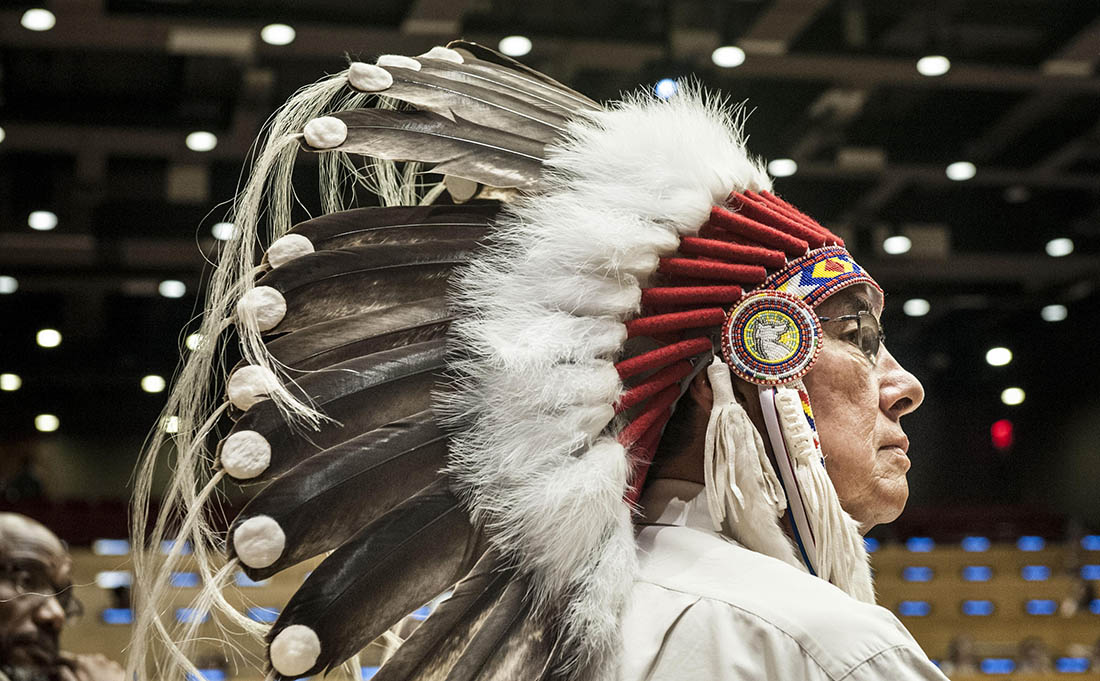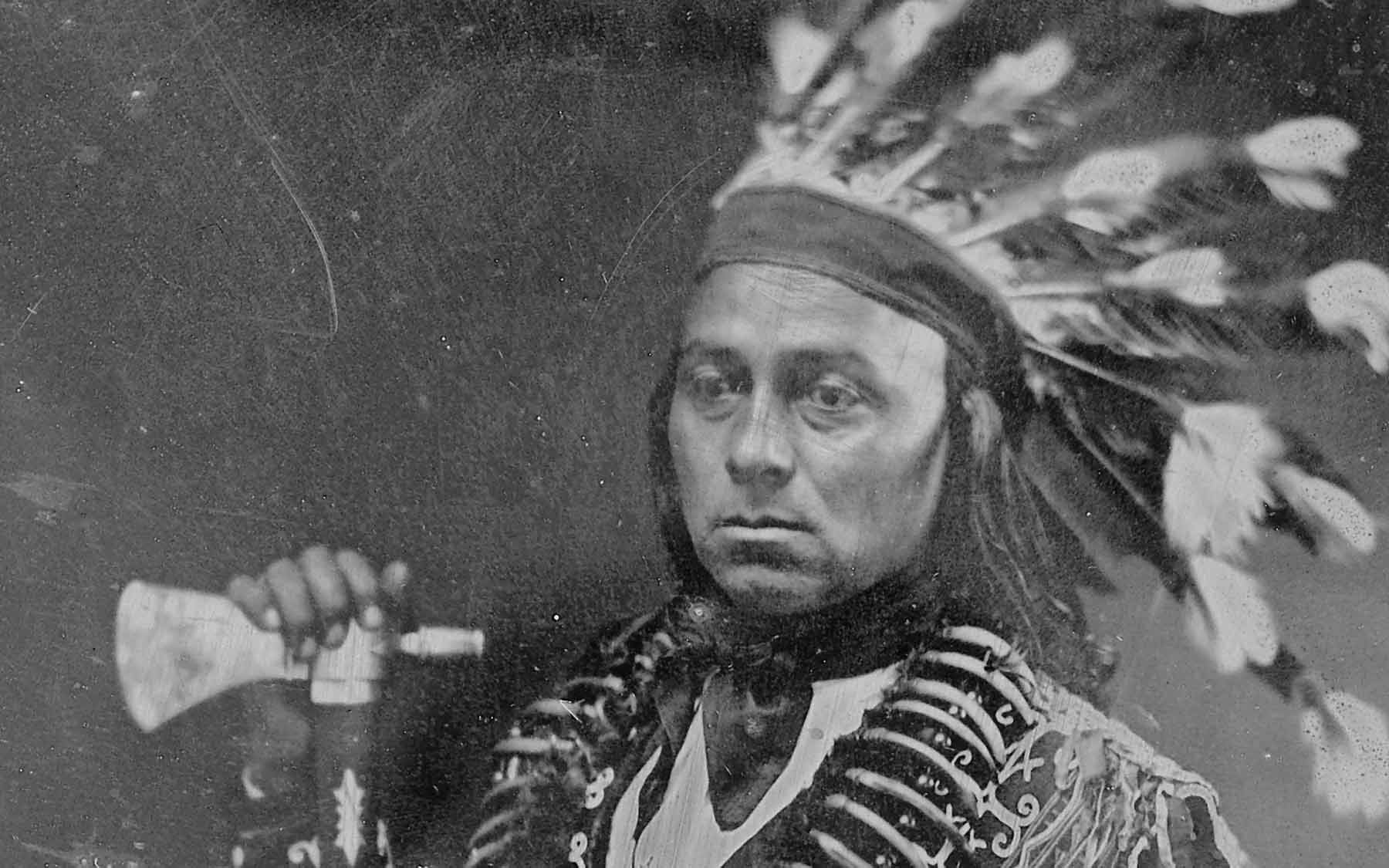Jacob Wilton (Willie) Littlechild, CC, AOE, athlete, lawyer, Cree chief, politician, advocate for Indigenous rights (born 1 April 1944 in Hobbema, [now Maskwacîs] AB). Littlechild formed and coached Alberta’s first all-Indigenous junior hockey team and created the National Indian Athletic Association. He is a member of seven sports halls of fame. In 1976, Littlechild earned a law degree from the University of Alberta. He went on to become the first member of Parliament with Treaty Indian Status in Canada in 1988. Littlechild served as a commissioner of the Truth and Reconciliation Commission in 2009. Throughout his career, Littlechild has promoted Indigenous rights both nationally and internationally.

Early Life and Education
Wilton Littlechild was born a member of the Ermineskin Cree Nation. He grew up on reserve land traditionally known as Bear Hills or Maskwacheesihk, 80 km south of Edmonton, Alberta. He came from a large family and was raised by his grandparents, Mary Jane Minde and Chief Dan Minde. From them, he learned the importance of education and respecting the traditional Cree culture.
When he was six years old, Littlechild was sent to the Ermineskin residential school. He later attended other residential schools. He felt the pain of physical separation from his family and of the spiritual separation from his culture. Like too many children in those institutions across Canada, he suffered physical and sexual abuse. He survived residential schools by dedicating himself to sports and his studies.
Littlechild earned a degree in Physical Education at the University of Alberta in 1967 and then a Master’s degree in 1975. A gifted athlete, Littlechild excelled at hockey, swimming and baseball. He also coached and managed other sports. Littlechild formed and coached Alberta's first all-Indigenous junior hockey team and created the National Indian Athletic Association. This organization grew to organize a host of athletic opportunities across Canada and the United States. Littlechild won more than 70 provincial, national and international championships and has been inducted into seven sports halls of fame.
In 1976, Littlechild earned a law degree from the University of Alberta. The Cree Nation acknowledged his accomplishment by naming him an honorary chief and giving him his grandfather’s Cree name — Mahihgan Pimoteyw (Walking Wolf).
Littlechild met his wife, Helen, at a football game in 1967. They have three children.
Law and International Advocacy

Wilton Littlechild established a law practice on the Ermineskin reserve in 1977. Later that year, he was chosen to be part of the Indigenous delegation to the United Nations (UN), where he contributed to the writing of the UN Declaration on the Rights of Indigenous Peoples. That experience was the beginning of several contributions he made to advancing Indigenous rights around the world.
He appeared before British courts to avoid patriating the Canadian constitution until it included guarantees of Indigenous rights. Littlechild helped found the Indigenous Initiative for Peace and chaired the committee that created the Organization of American States’ American Declaration on the Rights of Indigenous Peoples. Despite his world travels, Maskwacîs remained his home.
Member of Parliament
Wilton Littlechild ran in the 1988 federal election as a Progressive Conservative candidate in the riding of Wetaskiwin, Alberta. He won 50 per cent of the popular vote to become the first member of Parliament with Treaty Indian Status. In his maiden speech to the House of Commons, Littlechild spoke a few sentences in Cree.
While representing his constituents, Littlechild also served on several parliamentary committees. These include the Standing Committee on Aboriginal Affairs, Special Committee on the Review of the CSIS Act and the Security Offences Act, Joint Senate and House Committee on the Constitution, and the Standing Committee on Energy, Mines and Resources. He was also vice-chair of the Standing Committee on Justice and Solicitor General.
Littlechild was chosen to be a parliamentary delegate to the United Nations in Geneva and New York City. There, he organized representatives from Indigenous peoples in several countries to obtain consultative status with the UN Economic and Social Council. He did not run for re-election in 1993.
Commission on First Nations and Métis Peoples and Justice Reform
In Saskatchewan, Wilton Littlechild was the chair of the Commission on First Nations and Métis Peoples and Justice Reform. It was formed in November 2001 and was comprised of five members. Its mandate was to investigate and make recommendations to address the treatment of First Nations and Métis people by the justice system and police in Saskatchewan.
The Commission’s final report, Legacy of Hope, was submitted on 21 June 2004. It stated that systemic racism was the root cause of mistrust and ill feelings toward the police and justice system among many Indigenous people. It made 122 recommendations to rectify the problems.
Truth and Reconciliation Commission
In 2009, Wilton Littlechild became a commissioner of the Truth and Reconciliation Commission (TRC). The TRC was part of the 2007 Indian Residential Schools Settlement Agreement. CBC broadcaster Marie Wilson joined Littlechild as a commissioner while Justice Murray Sinclair served as chair.
The TRC’s six-volume final report was released on 15 December 2015. It argued that the residential school program resulted in cultural genocide and outlined 94 Calls to Action. ( See also Genocide and Indigenous Peoples in Canada.) Littlechild was proud to have served on the TRC.
Meeting the Pope
One of the TRC’s Calls to Action was an apology from the Catholic Church for its role in residential schools. After years of negotiations, in March 2022, Wilton Littlechild was among 200 Indigenous delegates who travelled to the Vatican and heard Pope Francis’ apology. Littlechild said, “I hoped for it. I prayed for it. I dreamt for it. But I never expected to live and see and feel it.” The Pope agreed that to make the apology truly meaningful, he had to repeat it in Canada.
Pope Francis visited Canada from 24–29 July 2022. His first stop was the former Ermineskin residential school that Littlechild had attended in Maskwacîs, Alberta. Littlechild was present when Pope Francis repeated his apology for the Catholic Church’s role in residential schools during his visit to Canada.
Awards and Honours
In addition to honorary degrees and other honours, Wilton Littlechild has received the following awards:
- Tom Longboat Award (1967) and (1974)
- Canada 125 Medal (1993)
- 2000 Outstanding Intellectuals of the 21st Century (2004)
- Distinguished Award from the Association of Former Parliamentarians (2006)
- Honorary Doctor of Laws, University of Alberta (2007)
- Queen Elizabeth II’s Diamond Jubilee Medal (2012)
- Indspire Award for Law and Justice (2014)
- Alberta Order of Excellence (2014)
- Meritorious Service Cross (2017)
- Canada’s Sports Hall of Fame (2018)
- StrongPearson Peace Medal (2019)
- Companion, Order of Canada (2023)

 Share on Facebook
Share on Facebook Share on X
Share on X Share by Email
Share by Email Share on Google Classroom
Share on Google Classroom









